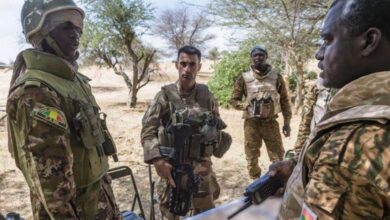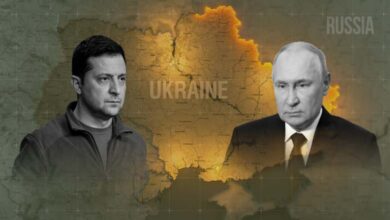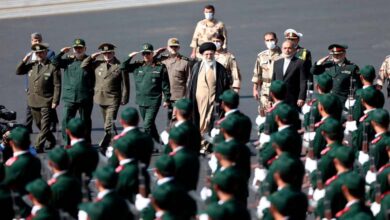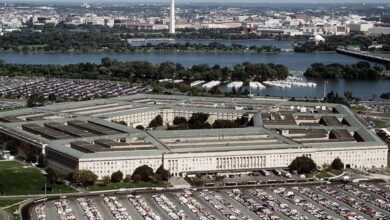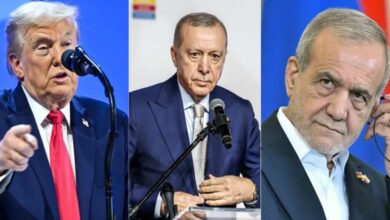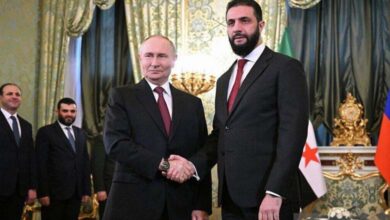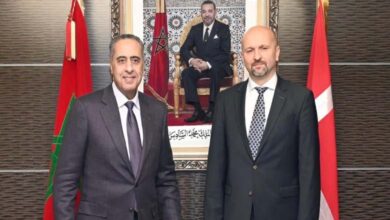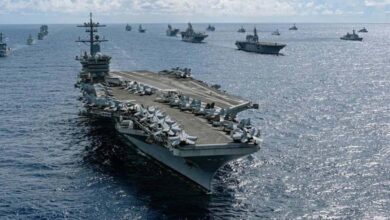After the Gaza Agreement… Receding Justifications and Rising Pressure to Disarm Hezbollah
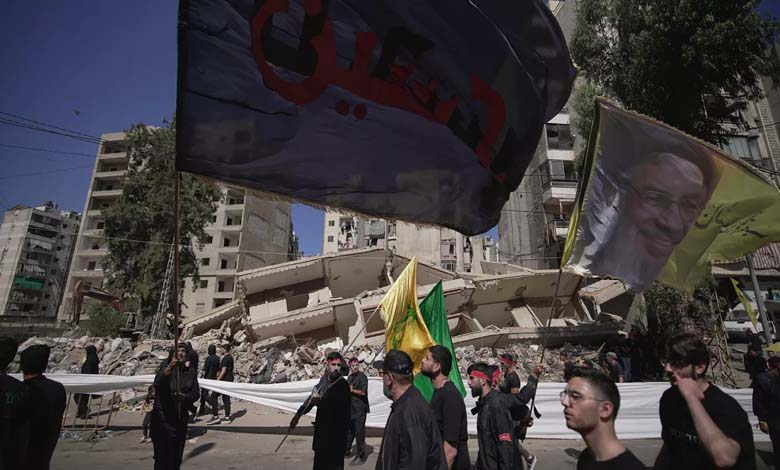
The Gaza agreement represents a major regional turning point, extending beyond the enclave to Lebanon, which faces a critical moment that could reshape internal power balances.
Lebanese experts view the Gaza agreement as a strong boost for the government in implementing its plan to centralize weapons under state authority, entrusted to the army, with the support of international and Arab efforts aimed at stabilizing the country, which has become a key component of post-Gaza regional security arrangements.
-
Israeli army announces elimination of two Hezbollah commanders
-
Disputes shake Hezbollah’s media apparatus and turn into a power struggle
However, these developments carry contradictory possibilities: they could open a national path to restore the state’s legitimacy, or they could trigger increased internal confrontation if Hezbollah continues to maintain its weapons and external ties.
Experts agree that the agreement provides Lebanon with a historic opportunity to rebuild state authority and reclaim sovereignty, but it also presents a test of national will and the capacity to implement it without sliding into internal conflict.
-
Millions for Information on a Hezbollah Financier: Who is Ali Qasir, Wanted by Washington?
-
Hezbollah Cell in Syria: Details of the Terrorist Plot and Heavy Weapons Seizure
A Decisive Turning Point
Researcher and political analyst Tarek Abou Zineb said that the Gaza ceasefire represents a crucial milestone with direct implications for Lebanon, both in terms of security stability and the implementation of the Lebanese army’s plan to centralize weapons and control internal areas.
If the ceasefire holds, Abou Zineb explains, it will remove the justifications for escalation on Lebanon’s southern border and weaken Hezbollah’s excuses for keeping weapons, granting the Lebanese army greater freedom to implement its plan to disarm illegal forces with increasing popular and international support.
-
Hezbollah member injured in Israeli strike on Lebanon
-
Hezbollah and disarmament: cautious approval or a tactic to buy time?
The next phase may see growing international and Arab pressure to support the Lebanese state and enable the army to assert full authority, particularly as Lebanon’s stability has become a central element of post-Gaza regional security arrangements.
The international community takes seriously the need to disarm illegal groups and dismantle armed hotspots in Palestinian camps as a first step toward reinforcing state authority and shielding Lebanon from regional conflicts, according to Abou Zineb.
-
Lawsuit Filed Against Hezbollah’s Deputy Secretary-General for Threatening Lebanon with Civil War
-
Hezbollah threatens civil war in Lebanon and warns of a Karbala-style battle
He emphasizes that the Lebanese army now has a historic opportunity to execute its national plan in carefully planned stages, beginning with the disarmament of Palestinian camps and other armed factions, alongside addressing militia weapons across Lebanese territory.
“The goal is a comprehensive national project that restores the state and its institutions and ends the logic of mini-states within the state, which has caused major losses to Lebanon’s security, economy, and sovereignty,” he adds.
According to him, the success of the Gaza agreement will not be complete without tangible implementation in Lebanon, by enabling the army to centralize weapons and affirming that security can only be established under the exclusive authority of the state, away from factional arms or external projects threatening national unity and the country’s future.
-
Hezbollah threatens Lebanon with a Karbala-style battle to keep its weapons
-
Hezbollah Faces a Silent Collapse: Missing Leadership, Besieged Weapons
Ending the “Weapons Issue”
Former Lebanese minister and head of foreign relations at the Lebanese Forces party, Richard Qayumjian, said that the main effect of the Gaza ceasefire is the complete loss of any justification for Hezbollah to retain its weapons.
“These weapons were used under the pretext of supporting Gaza, but in reality, they never effectively assisted it or liberated Lebanese territory. Therefore, there is no legal, practical, or military reason for these arms to remain in any faction’s hands, especially Hezbollah’s,” he explains.
Any positive impact of the ceasefire on Lebanon’s stability and security depends, according to him, on Iran’s continued influence, which has been excluded from the current regional process, and its use of Hezbollah as leverage to maintain instability in the south.
-
Beirut Port Explosion Anniversary: Justice Moves Forward Despite Hezbollah’s Obstruction
-
U.S. Patience Wears Thin as Hezbollah Disarmament Stalls
Qayumjian urged Hezbollah to act in Lebanon’s interest so the country can engage in a regional project for stability, economic cooperation, and peace. He also stressed the need for the army to implement its plan swiftly to fully resolve the weapons issue and hold Hezbollah and its leadership accountable for their national responsibilities.
He noted that the so-called “Iranian axis” that previously dominated Lebanon and other regional countries has collapsed, and Lebanon now belongs to a new axis that will ultimately lead to regional peace.
-
Taëf and Weapons Control: Salam Stands for State Restoration, Hezbollah Holds Its Ground
-
Hezbollah resists internal and external pressure to disarm
Changing the Implementation Pace
Charles Jabbour, head of media and communication at the Lebanese Forces party, described the Gaza agreement as a “major earthquake” with far-reaching repercussions for Lebanon.
He explained that the events in Gaza will push the country in a new direction, altering the rhythm of the Lebanese state and its approach to implementing the weapons centralization plan.
-
After a Defeat… Hezbollah Now Ties the Decision to Go to War to the Lebanese State
-
Israel strikes Hamas, Hezbollah, and Houthi “weapons supply line” in Iran… Who is Behnam Shahriari?
Among the first effects of this “Gaza earthquake,” he highlights two major positions of President Joseph Aoun: holding Hezbollah responsible for involving Lebanon in a support war, and meeting U.S. President Donald Trump to engage in indirect negotiations with Israel to resolve outstanding issues, primarily Hezbollah’s arsenal, which remains the main obstacle to any settlement.
Jabbour noted that the agreement also nullifies Israeli pretexts for presence in five southern Lebanese areas if the state successfully centralizes weapons. The Lebanese president emphasized the importance of dialogue with Israel, stating that “the current atmosphere favors agreements,” warning that Lebanon cannot ignore regional shifts without being swept away by political and economic changes.
Since last November, a U.S.- and French-sponsored ceasefire has been in effect, but Israel has continued raids targeting Hezbollah elements and infrastructure, especially in the south, while maintaining forces on five hills in southern Lebanon, contrary to the agreement.
-
Israel Warns Naim Qassem: There Will Be No Hezbollah in That Case
-
Lebanon Dismantles Hezbollah Network with Israeli Support
War Scenario
Lebanese political analyst Michel Chammai said that “the post-Gaza trajectory indicates a gradual escalation toward resolving the Lebanese file, and Lebanon cannot remain outside this process.”
He does not rule out a renewed conflict, warning: “The war scenario is escalating. The international community will not wait long for a soft Lebanese-style approach to Hezbollah’s arms; it demands swift and effective disarmament.”
“President Aoun seeks to avoid confrontation with any Lebanese faction to prevent bloodshed, while Hezbollah clings to all its old options as if no developments occurred, as reflected in the recent speech by Hezbollah Secretary-General Naim Qassem,” he adds.
-
Israel Announces Killer Beam to Counter Hezbollah
-
Hezbollah’s Footprints in the Heart of Sanaa: Ṣarif Explosion Exposes Iran’s Missile Network
Chammai believes no compromise on Hezbollah’s weapons is likely, as the party links its arsenal to its very existence, extending beyond Lebanese borders. Weapons serve to implement this extension.
He warns that, if this situation persists, and with the U.S. president determined to implement his regional plans under his “peace through strength” doctrine, Lebanon remains at risk of repeated Israeli attacks under U.S. cover.
U.S. diplomatic sources told local media on Wednesday that Washington “considers Lebanon the next arena in confronting Iranian influence,” adding: “There is no state in Lebanon with Hezbollah as a state, nor sovereignty with weapons determining war and peace… The phase of peace through force has already begun.”


